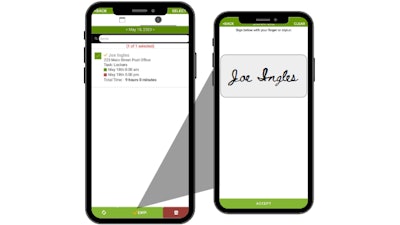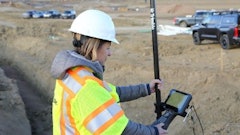
The American work culture is built on overtime, minimum wage and the 40-hour work week. All three stem from the Fair Labor Standards Act (FLSA), which was passed more than 80 years ago to ensure a fair day’s pay for a fair day’s work. Still, today’s wage and labor rules are complex, and the effects of FLSA can be felt across all businesses.
With so many updates and final rulings to keep track of, coupled with outdated reporting practices, construction firms face an uphill battle to ensure everything on payroll is completely accurate and compliant with FLSA. Luckily, cloud-based time tracking guarantees payroll is processed properly, so companies can avoid violations in the first place.
Read on for three key reasons why construction companies will benefit from implementing cloud-based time tracking.
Time tracking solutions empower the employee
For managers looking to stay within the rails of labors laws and simultaneously cut their administrative time, modern time tracking takes the guesswork out of trying to monitor shifting labor and task progress by placing the tracking and timesheet management directly into the hands of the employee.
Typically, time tracking is done by a team’s supervisor or by individual employees on paper or simple spreadsheets. Such outdated tracking is susceptible to errors that can shortchange an employee if they are working before or after a shift, not completely relieved from duties during meal breaks, or traveling to and from a shop to a worksite – all red flags for potential labor violations.
Some labor hour inaccuracies come from the limitations of basic time tracking technology. If an employee has to clock in and out from the same company-issued shared mobile device as they move from job to job, it can lead to missing hours for payroll. But, advanced time tracking apps with live field data from the cloud eliminate these issues by aggregating and accurately compiling the employee’s time from all of the shared mobile devices. Employees tracking their time on a shared company mobile device are able to capture all of their hours worked and there are no missing labor hours, which keeps the construction company FLSA compliant.
With an advanced cloud-based time tracking app, employees can enter their time and approve or sign-off that the hours entered are correct, decreasing the likelihood of an accidental wage and hour violation under the FLSA. The ability to enter and visibility to see all of time entered empowers employees to own the accuracy and validity of their paychecks. This ensures that employees are being paid for the hours worked and allows them to easily document when they are working, even if it was during their scheduled lunch break, by simply clocking in and out of any mobile device.
Employees can also track their time and job class on any shared mobile device or their own mobile device with or without service. Basic time tracking apps require internet or cell service in order for employees to enter their time. Contractors often work in remote areas without service and employees may have missing hours because they have to wait until they have internet or cell service before they can clock in or out. The best-in-class time tracking apps allow employees to enter their time as it happens, even without network service, to avoid any missing labor hours. This also helps keep construction businesses more FLSA compliant.
Time tracking solutions protect the employer
Having a system that tracks labor in real-time also benefits the contractor by making sure the information is well documented and as accurate as possible. One way is through face recognition features that will automatically take a picture of the employee’s face while clocking in and out and compare a 3D reading of the image to their profile image and return a Pass / Fail match percentage. Face recognition eliminates buddy punching and other fraudulent means of clocking in or out. It provides an employer defensible documentation that the person entering the hours was indeed the right person.
Employers also get the employee’s signature for approval of the hours that were entered into the time tracking app. This employee-based documentation insulates employers from FLSA accusations and potential fines.
Employers are also certain to eliminate any errors leading to employees missing hours because they worked across multiple time zones. With modern GPS location services tagging map pins on clock in, clock out, or task changes, time-stamps automatically and accurately calculate the total hours the employee worked while taking the time zone changes into consideration.
Contractors can also have difficulty with overtime calculations when employees work in different job classes. A common FLSA violation is the incorrect overtime calculation when a construction employee is assigned more than one job class. Frequently in construction, employees have different job classes based on the skill, various union rules, and risk associated with an activity making it difficult to track accurately with paper, spreadsheets, or basic time tracking apps. Advanced time tracking solutions also make it easy for employees to select the right job class and view the total number of hours per job class before they approve their hours worked.
The employees and employer have the same accurate visibility of hours per job class before that time is submitted for payroll. Once they know the number of hours per job class is correct in the time tracking solution, both employee and employer are confident in the accuracy of the overtime calculations because it’s automatically applied no matter how many job classes they have.
Labor law violations are expensive
Construction companies need to abide by special guidelines to ensure they are operating within FLSA and all labor laws. Still, violations can occur, and when they do, it’s imperative they be addressed right away. Minimum wage or overtime violations carry a $1,000 fine per instance on top of paying any back-pay owed to workers. All other violations carry the possibility of criminal prosecution and fines up to $10,000. Violations after the second conviction can even lead to a prison term. In 2019 there were 3,063 cases charged with nearly $39 million in settlements involving over 25,000 employees – and these figures don't include court and legal fees.
Employers may make these errors unintentionally, either by oversight or negligence. But no matter how a labor law violation occurs, the damage it can cause between a company and its employees is real. Incorrectly paying employees what they’ve earned can lead to a decrease in trust, employee morale and a company’s reputation.
To avoid these issues and financial burdens, construction companies should leverage the capabilities provided by latest time tracking solutions. Digitally managing labor across projects, including specific tasks and time, protects the employer and employee from any unintended mistakes and consequences in both directions. Time tracking apps also give supervisors access to see in real time the hours that the employees on their crews are working to know if they are approaching overtime. This allows supervisors to obtain approval for overtime, if needed, in advance. The overtime rules are accurately and automatically applied so that the company is always in compliance with FLSA overtime rules. Additionally, it ensures that the correct hours and rates are processed through payroll every time.
Keeping up with every aspect of the construction industry can be overwhelming! As labor and wage laws continue to evolve, the average contractor will struggle to stay in sync with FLSA labor laws. Accept the opportunity to relieve some of the stress by taking advantage of cloud-based time tracking and avoid unnecessary violations, while ensuring that you are operating in compliance with federal labor laws.
Mike Merrill is the co-founder and COO of WorkMax. With 10 years of experience in construction and real estate and 16 years as a technology executive, Mike brings strong leadership and expert knowledge to the WorkMax team. Before running business operations for WorkMax, Mike spent 22 years as an entrepreneur and business owner in the construction and technology industry. He also brings insights and strong industry relationships from his participation in Construction Financial Management Association (CFMA) and Construction Open Standards Alliance (COSA).
https://www.linkedin.com/in/michaeltmerrill/
https://www.facebook.com/workmaxsocial/
https://twitter.com/WorkMaxSocial
Contact: [email protected]





















